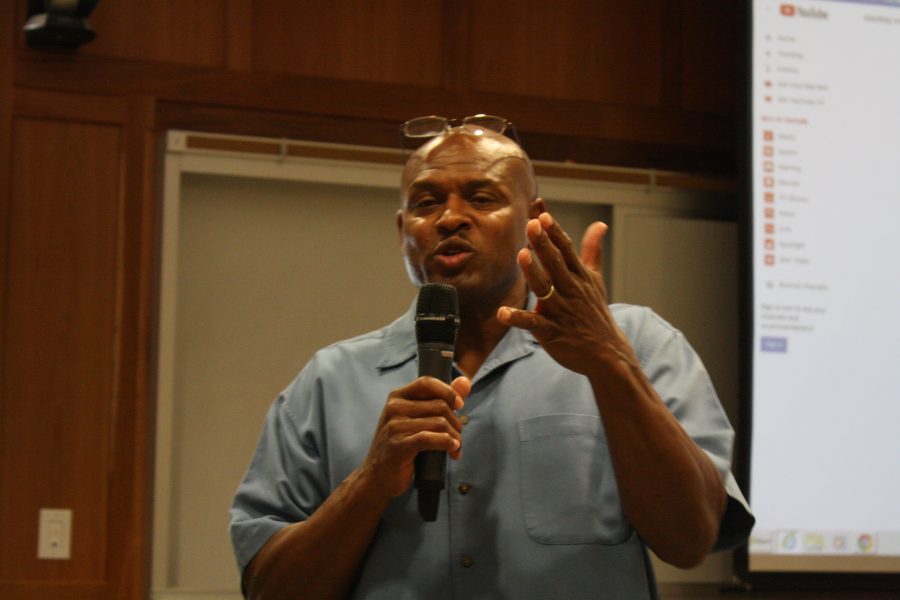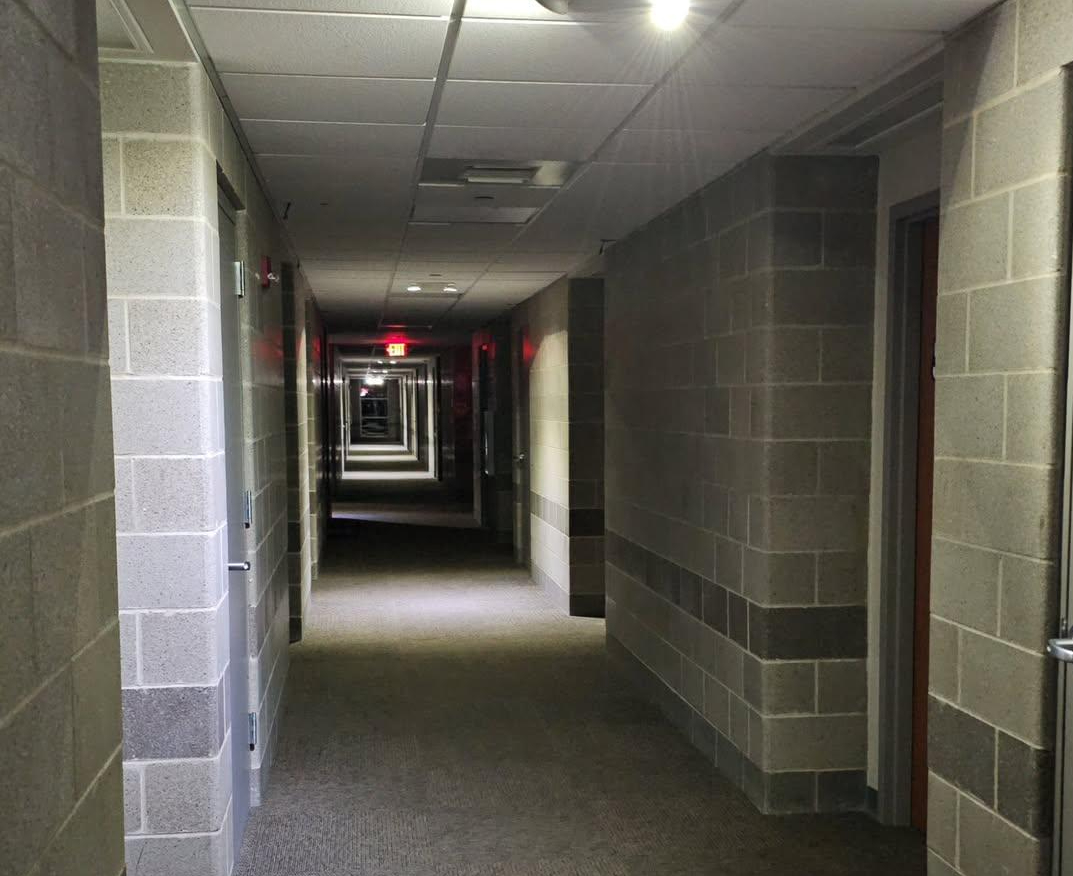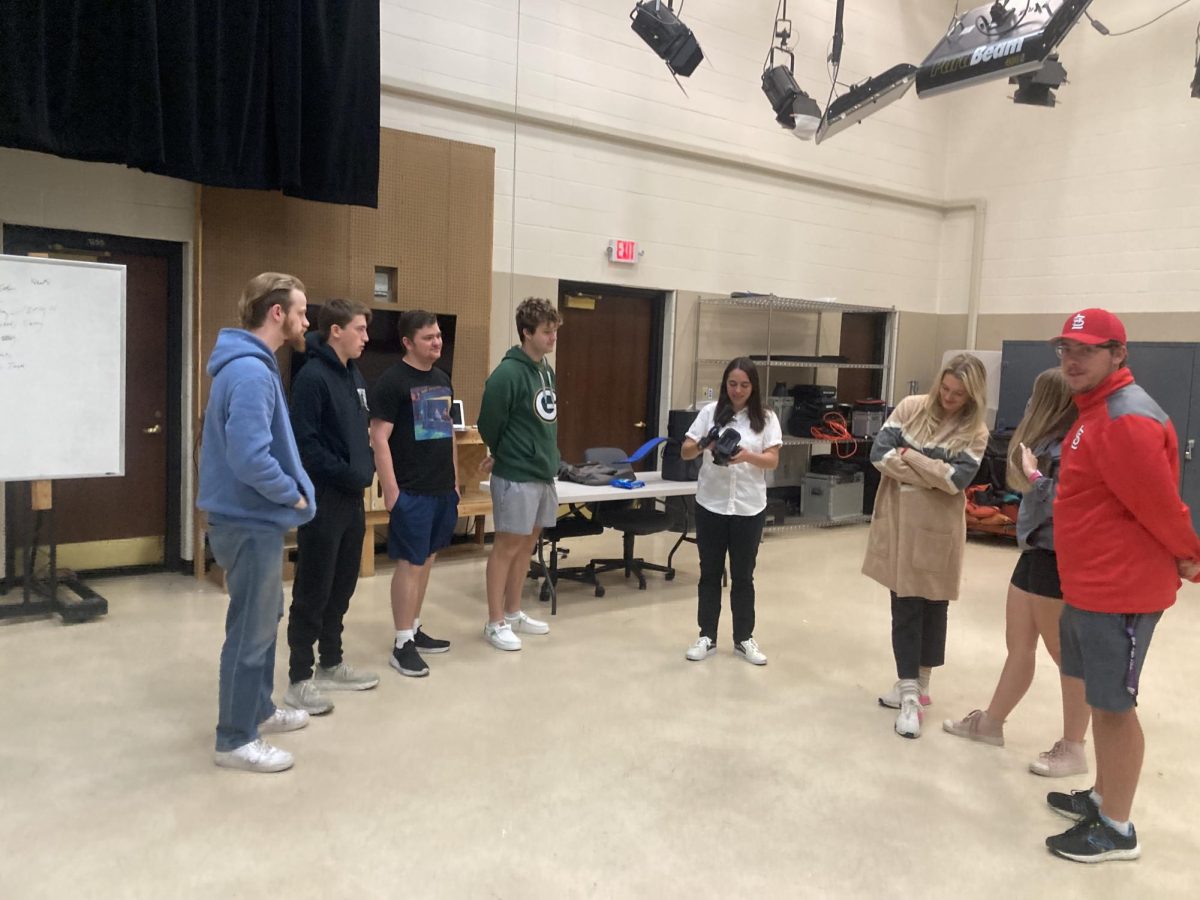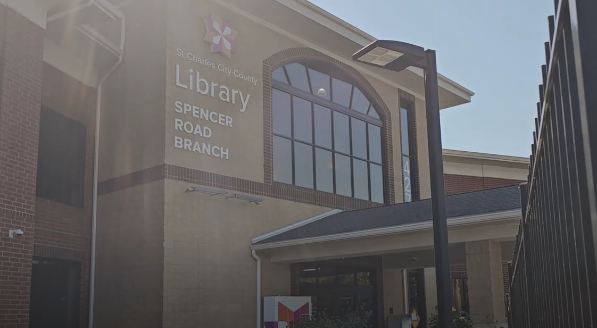MATT HAMPTON | Reporter
An open forum Tuesday in Dunseth Auditorium offered students a chance to ask questions and voice concerns about policing and race.
The forum, which was sponsored by the Office of Student Life and Diversity, discussed the acquittal of white St. Louis police officer Jason Stockley in the 2011 killing of Anthony Lamar Smith, a black man.
The event had a panel consisting of criminal justice professor Pernell Witherspoon, assistant criminal justice professor Saint Rice Jr., director of graduate criminal justice programs for accelerated degree programs Dr. Donna Bradley and Title IX coordinator Kelly Moyich.
“I saw some problems with the case,” said Witherspoon, the black ex-police officer who moderated the forum. “You cannot ignore that the DNA came from the officer alone. You just can’t ignore it.”
Witherspoon also objected to what he called biased statements by the judge in the verdict, which said that Smith probably had a firearm.
“I worked undercover for five years, arrested over 100 crack dealers,” he said “Most of them didn’t have guns.”
However, the panelists acknowledged that these details could not disprove Stockley feared for his life, which Bradley said the prosecution needed to do in order to convict him for first-degree murder.

Photo by Scott Mandziara
Senior anthropology student Allen Mitchell passionately pointed out fears many black people have about the police.
“As a young black man under the age of 26, I am one of the most targeted groups by law enforcement,” Mitchell, the president of the Black Student Union, said after the forum. “Statistically speaking, that’s the group of people who are more likely to be killed by police every day.”
Bradley talked about the dialogue she had with her children about how to act around law enforcement.
“I’ve asked the white men in my class, ‘What conversation did your parents have with you about the police?’ and inevitably, their parents didn’t have to talk to them about the police,” she said.
Rice and Bradley also mentioned the potential corrupt relationships between police and the justice system.
“Those defense attorneys that had social relationships with the prosecutors were able to get better deals with their clients,” Bradley said.

Photo by Matt Hampton
The discussion was sometimes lighthearted, and the audience laughed on more than a dozen different occasions. However, in other instances, the atmosphere became more tense.
At one point, Bradley asked the audience, “Do you think that Smith in any way contributed to his own demise?”
Some white students’ answers to this question caused controversy. Robert Carter, a student veteran from the state of Georgia, said perhaps Smith wouldn’t have been shot if he understood when police have the right to use deadly force.
“I wonder if it’s time for us to start teaching what deadly force is,” he said.
One audience member shouted that would be “like teaching women not to get raped.”
Carter later said he was baffled by the uproar, and he wants everyone to be educated on deadly force to avoid becoming a victim or if they have to use it themselves.
[perfectpullquote align=”right” cite=”Robert Carter” link=”” color=”” class=”” size=””]”Understanding the law helps you abide by the law better”[/perfectpullquote]
“Understanding the law helps you abide by the law better,” he said.
After calming the crowd from an outcry about another student’s comments, Witherspoon said, “You guys looked like you were ready to jump up just a second ago.”
Toward the end of the event, he gave a vociferous call for calm, honest discussion about race.
“We have some bad police officers out there,” Witherspoon said. “Guess what, you all? We have some bad people out there also. What I see that aggravates me is the police that will come to bat for this rotten police officer, and then I see black people who will come to bat for a rotten black person.”
In their final remarks, Bradley encouraged people to look up the number of people killed by police by race, and Rice, who worked for the Missouri Department of Corrections, said discussions like these are necessary to understand our differences.
“That’s the only way we’re going to be able to overcome those biases is if we create these critical conversations that don’t always feel good,” he said.









